The Fellow of The Electrochemical Society was established in 1989 to honor advanced individual technological contributions in the fields of electrochemistry and solid state science and technology, and service to the Society. These members are recognized at the plenary session for their scientific achievements, leadership, and active participation in the affairs of ECS. Each year, up to 15 renowned scientists and engineers are chosen by their peers for this honor. Join us in celebrating the 2020 class of Fellows of the Electrochemical Society.
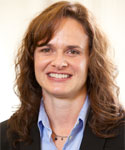 Katherine Ayers is Vice President of R&D for Nel Hydrogen US, focused on onsite hydrogen generation via water electrolysis. She has been with Nel since 2007, with responsibility for developing and executing Nel’s technology strategy. She manages a broad portfolio of internally and externally funded research projects across a range of collaborators in academia, industry, and National Labs. Her group’s research spans polymer membranes, catalysts, porous transport materials, and device design. Ayers received her BS in Chemistry/Chemical Physics at the University of California San Diego and received the Urey Award as the top chemistry graduate in her class. She earned her PhD in Chemistry at the California Institute of Technology (Caltech) on an NSF Graduate Fellowship. She spent 10 years in the battery industry before moving to Nel.
Katherine Ayers is Vice President of R&D for Nel Hydrogen US, focused on onsite hydrogen generation via water electrolysis. She has been with Nel since 2007, with responsibility for developing and executing Nel’s technology strategy. She manages a broad portfolio of internally and externally funded research projects across a range of collaborators in academia, industry, and National Labs. Her group’s research spans polymer membranes, catalysts, porous transport materials, and device design. Ayers received her BS in Chemistry/Chemical Physics at the University of California San Diego and received the Urey Award as the top chemistry graduate in her class. She earned her PhD in Chemistry at the California Institute of Technology (Caltech) on an NSF Graduate Fellowship. She spent 10 years in the battery industry before moving to Nel.
Ayers is widely recognized in the hydrogen field for her ability to link fundamental science with industrial and manufacturing perspective. She leads a benchmarking program spanning the US water splitting community funded by the Hydrogen and Fuel Cell Technologies Office (HFTO). She served on multiple scientific advisory boards for Energy Frontier Research Centers and similar consortia, as well as two federal level advisory committees for the Department of Energy (DOE): HTAC (Hydrogen and Fuel Cells Technical Advisory Committee, 2015-2019), and BESAC (Basic Energy Sciences Advisory Committee, 2019-present). Ayers received an R&D award at the 2012 DOE Merit Review from the HFTO Production Team, and an American Chemical Society Women Chemists Committee 2014 Rising Stars Award. She also received a Fuel Cell Seminar Program Award in 2015.
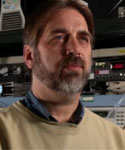 Rodney “Rod” Borup was appointed Scientist at Los Alamos National Laboratory in 1999, starting as a postdoctoral researcher there in 1994. He also holds a research professor position at the University of New Mexico Department of Chemical & Biological Engineering. Borup received his BSE in Chemical Engineering from the University of Iowa in 1988, and his PhD from the University of Washington in 1993. He is director of the Fuel Cell Consortium for Performance and Durability (FC-PAD) which includes Los Alamos, Argonne, Lawrence Berkeley, and Oak Ridge National Labs, and the National Renewable Energy Lab. Borup’s main research areas are related to PEM fuel cells including fuel cell component durability, water transport, electrode design, and GDL materials, funded primarily through the DOE Hydrogen and Fuel Cell Technologies Office (HFTO).
Rodney “Rod” Borup was appointed Scientist at Los Alamos National Laboratory in 1999, starting as a postdoctoral researcher there in 1994. He also holds a research professor position at the University of New Mexico Department of Chemical & Biological Engineering. Borup received his BSE in Chemical Engineering from the University of Iowa in 1988, and his PhD from the University of Washington in 1993. He is director of the Fuel Cell Consortium for Performance and Durability (FC-PAD) which includes Los Alamos, Argonne, Lawrence Berkeley, and Oak Ridge National Labs, and the National Renewable Energy Lab. Borup’s main research areas are related to PEM fuel cells including fuel cell component durability, water transport, electrode design, and GDL materials, funded primarily through the DOE Hydrogen and Fuel Cell Technologies Office (HFTO).
Borup has 13 US patents (with more submitted). The author of approximately 150 papers related to fuel cell technology, he has over 9900 citations and an H-index of 38. Borup received numerous awards including the Principal Investigator (PI) for the 2004 Fuel Cell Seminar Best Poster Award, 2005 DOE Hydrogen Program R&D Award, US Drive 2012 Tech Team Award for the Fuel Cell Technical Team, 2014 winner of the Research Award of the Energy Technology Division of the Electrochemical Society, PI for the 2015 Fuel Cell Seminar Best Poster Award, and 2016 DOE Fuel Cell Technologies Office Annual Merit Award for Fuel Cells.
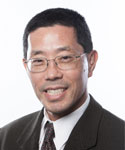 Yet-Ming Chiang holds the Kyocera Professorship at the Massachusetts Institute of Technology (MIT) Department of Materials Science and Engineering. He joined the MIT faculty in 1984 after receiving BS and ScD degrees from MIT. His primary field of research is inorganic materials and their applications in advanced technology. Over the past two decades, his work has increasingly emphasized clean energy technologies such as non-aqueous and aqueous batteries for transportation and grid-scale storage, and most recently, electrochemical production of construction materials. Chiang has published about 300 scientific articles, 14 book chapters and edited volumes, and one textbook. He also holds about 85 issued US patents, of which more than 60 have been licensed to, or are held by practicing companies. In addition to his academic research, Chiang co-founded several companies based on research from his MIT laboratory including the energy technology companies American Superconductor Corporation (1987), A123 Systems (2001), 24M Technologies (2010), Form Energy (2017), and Sublime Systems (2020).
Yet-Ming Chiang holds the Kyocera Professorship at the Massachusetts Institute of Technology (MIT) Department of Materials Science and Engineering. He joined the MIT faculty in 1984 after receiving BS and ScD degrees from MIT. His primary field of research is inorganic materials and their applications in advanced technology. Over the past two decades, his work has increasingly emphasized clean energy technologies such as non-aqueous and aqueous batteries for transportation and grid-scale storage, and most recently, electrochemical production of construction materials. Chiang has published about 300 scientific articles, 14 book chapters and edited volumes, and one textbook. He also holds about 85 issued US patents, of which more than 60 have been licensed to, or are held by practicing companies. In addition to his academic research, Chiang co-founded several companies based on research from his MIT laboratory including the energy technology companies American Superconductor Corporation (1987), A123 Systems (2001), 24M Technologies (2010), Form Energy (2017), and Sublime Systems (2020).
Chiang is a member of the US National Academy of Engineering (2009) and Fellow of the Materials Research Society (2010), American Ceramic Society (1998), and National Academy of Inventors (2017). His work has been recognized by the Economist’s Innovation Award (Energy and Environment Category, 2012), The Electrochemical Society Battery Division’s Battery Technology Award (2012), the Materials Research Society’s Plenary Lectureship (2011), and the World Economic Forum’s Technology Pioneer Award (2016).
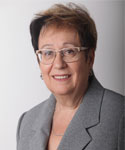 Diana Golodnitsky is a Professor of Chemistry and The Raymond and Beverly Sackler Chair in Chemistry and Energy Sciences at Tel Aviv University. She received an MSc and PhD (1984) from Karpov Physicochemical Scientific Research Institute, Russia, and State Technological University, Kazan, Russia, where she studied fundamental electrochemistry, electrodeposition, and electroforming of metals and alloys.
Diana Golodnitsky is a Professor of Chemistry and The Raymond and Beverly Sackler Chair in Chemistry and Energy Sciences at Tel Aviv University. She received an MSc and PhD (1984) from Karpov Physicochemical Scientific Research Institute, Russia, and State Technological University, Kazan, Russia, where she studied fundamental electrochemistry, electrodeposition, and electroforming of metals and alloys.
Golodnitsky joined Tel Aviv University in 1992. Her studies on ordered solid-polymer electrolytes (stretched and cast under applied gradient magnetic field) marked the beginning of active experimental research of ion transport in crystalline-polymer systems. Her current work focuses on the investigation of mechanisms controlling interfacial energy barriers in high-charge-carrier-content electrophoretically deposited composite materials. 3D-on-chip microbatteries, flexible, and free-form-factor printed batteries are also of particular interest. Golodnitsky published 130 refereed papers and six book chapters. She holds 19 patents and co-founded three startup companies. Golodnitsky is a Fellow of the Royal Society of Chemistry, President of The Israel Electrochemical Society, and board member of the Israel National Research Centre for Electrochemical Propulsion (INREP).
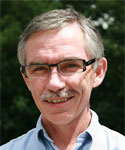 Dominique Guyomard received his engineering degree from the Ecole Supérieure de Physique et Chimie de Paris, France, in 1980, and in 1985, his PhD from the Université de Paris VI, France. He founded the Electrochemical Energy Storage and Transformation Lab (EEST) at IMN (Institut des Materiaux Jean Rouxel, France) in 2007, focusing on rechargeable batteries, supercapacitors, and high temperature fuels cells and electrolysers. His research centers on the design and development of new materials and new devices for energy storage applications including novel concepts for energy storage and advanced characterization, with the goal of improving battery performance in energy, safety, durability, and eco-compatibility.
Dominique Guyomard received his engineering degree from the Ecole Supérieure de Physique et Chimie de Paris, France, in 1980, and in 1985, his PhD from the Université de Paris VI, France. He founded the Electrochemical Energy Storage and Transformation Lab (EEST) at IMN (Institut des Materiaux Jean Rouxel, France) in 2007, focusing on rechargeable batteries, supercapacitors, and high temperature fuels cells and electrolysers. His research centers on the design and development of new materials and new devices for energy storage applications including novel concepts for energy storage and advanced characterization, with the goal of improving battery performance in energy, safety, durability, and eco-compatibility.
Guyomard received awards including the International Battery Association Research Award (2007), French Academy of Science Award for Science Transfer to Industry (2008), ECS Battery Division Research Award (2010), and ECS Battery Division Technology Award (2016). He co-invented 35 issued patents, co-authored more than 370 articles including 270 peer-reviewed papers, and delivered more than 100 invited talks at international conferences.
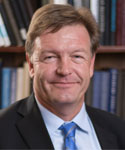 Andrew Herring is a Professor of Chemical and Biological Engineering at the Colorado School of Mines, US, where he has been employed since 1995. After completing his PhD in Inorganic and Structural Chemistry at the University of Leeds, England, in 1988, he completed postdoctoral appointments at Caltech and then at the Solar Energy Research Institute/National Renewable Energy Laboratory. His research interests are generally in materials or catalysis to enable renewable energy, energy efficiency, or energy storage. Beginning 25 years ago, he focused his work on low and intermediate temperature polymer electrolyte materials. Herring develops anion exchange membranes for electrolysis or fuel cells, and proton exchange membranes for increased durability or higher fuel cell operating temperatures He is also interested in membranes for ion selective redox flow batteries or for water applications. Herring’s group is involved in fundamental studies of the properties of these materials as well as their incorporation into devices.
Andrew Herring is a Professor of Chemical and Biological Engineering at the Colorado School of Mines, US, where he has been employed since 1995. After completing his PhD in Inorganic and Structural Chemistry at the University of Leeds, England, in 1988, he completed postdoctoral appointments at Caltech and then at the Solar Energy Research Institute/National Renewable Energy Laboratory. His research interests are generally in materials or catalysis to enable renewable energy, energy efficiency, or energy storage. Beginning 25 years ago, he focused his work on low and intermediate temperature polymer electrolyte materials. Herring develops anion exchange membranes for electrolysis or fuel cells, and proton exchange membranes for increased durability or higher fuel cell operating temperatures He is also interested in membranes for ion selective redox flow batteries or for water applications. Herring’s group is involved in fundamental studies of the properties of these materials as well as their incorporation into devices.
Herring authored over 170 journal articles and mentored more than 30 graduate students and over 105 undergraduate research assistants in his laboratory. He received a 3M Non-tenured Faculty Award, ACS Energy and Fuel Division Award, Henry H. Storch Award in Fuel Science, and is a Fellow of the American Chemical Society. He formerly chaired the Energy Technology Division of The Electrochemical Society.
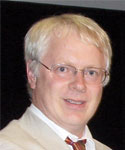 John TS Irvine became Professor of Chemistry at the University of St Andrews, Scotland, in 1999. His first degree is in Chemical Physics from Edinburgh University, Scotland, and he obtained a DPhil from the University of Ulster in Photoelectrochemistry. His research interests include solid state ionics, new materials, ceramic processing, electrochemistry, fuel cell technology, hydrogen, photoelectrochemistry, electrochemical conversion, and heterogeneous catalysis. Highlights of Irvine’s activities include discovering the emergent nanomaterials phenomenon, establishing the field of oxide fuel electrodes, delivering high performance direct carbon fuel cells, and demonstrating significant hydride ion conductivity.
John TS Irvine became Professor of Chemistry at the University of St Andrews, Scotland, in 1999. His first degree is in Chemical Physics from Edinburgh University, Scotland, and he obtained a DPhil from the University of Ulster in Photoelectrochemistry. His research interests include solid state ionics, new materials, ceramic processing, electrochemistry, fuel cell technology, hydrogen, photoelectrochemistry, electrochemical conversion, and heterogeneous catalysis. Highlights of Irvine’s activities include discovering the emergent nanomaterials phenomenon, establishing the field of oxide fuel electrodes, delivering high performance direct carbon fuel cells, and demonstrating significant hydride ion conductivity.
Irvine has over 500 publications and an H-index of 63. His s research has been recognized by a number of awards, including the Lord Kelvin Medal from the Royal Society of Edinburgh, Schönbein Gold Medal from the European Fuel Cell Forum (2016), RSC Sustainable Energy Award (201, and RSC Materials Chemistry, Bacon and Beilby awards/medals. Since 2012, he has published 10 Nature-family papers, including one on electrochemical switching in Nature in 2016. He held senior visiting appointments in the US, Australia, and China, and h links with leading laboratories across the Chinese Academy of Science, including as Thousand Talents Professor at Fujian Institute of Research on the Structure of Matter. He was re-elected European Councilor of the International Society for Solid State Ionics in 2015.
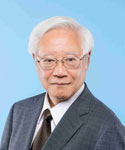 Hiroshi Iwai received his BE and PhD in Electrical Engineering from the University of Tokyo, Japan. He joined Toshiba in 1973, contributing to the development of integrated circuit devices. Iwai joined the Tokyo Institute of Technology, Japan, in 1999, researching semiconductor device technologies there for 21 years. He is now Professor Emeritus, Tokyo Institute of Technology; and Vice Dean and Distinguished Chair Professor, National Chiao Tung University, Taiwan. The author/coauthor of more than 1,000 international and 500 Japanese journal and conference papers, he holds 80 US and 65 Japanese patents.
Hiroshi Iwai received his BE and PhD in Electrical Engineering from the University of Tokyo, Japan. He joined Toshiba in 1973, contributing to the development of integrated circuit devices. Iwai joined the Tokyo Institute of Technology, Japan, in 1999, researching semiconductor device technologies there for 21 years. He is now Professor Emeritus, Tokyo Institute of Technology; and Vice Dean and Distinguished Chair Professor, National Chiao Tung University, Taiwan. The author/coauthor of more than 1,000 international and 500 Japanese journal and conference papers, he holds 80 US and 65 Japanese patents.
He is known for the continuation of miniaturization of MOSFETs from 8 μm to recent sub-50 nm generations, contributing for 50 years to the continuation of Moore’s law. Among the many awards Iwai received are the Grand Prize of Nikkei BP Technology Awards, IEEE EDS Paul Rappaport Award, IEEE EDS J.J. Ebers Award, Yamazaki-Teiichi Prize, Prizes for Science and Technology by the Japanese Minster of Education, IEEE Cledo Brunetti Award, the ECS Thomas Callinan award, and the Nagoya Mayor Award. He is an IEEE Life Fellow; and Fellow of the Institute of Electrical Engineers Japan; Japan Society Applied Physics; and Institute of Electronics, Information and Communication Engineers of Japan.
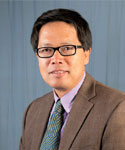 Yuehe Lin is a professor in the School of Mechanical and Materials Engineering at Washington State University, US, and a Laboratory Fellow at the Pacific Northwest National Laboratory (PNNL). He received his BS in Chemistry from Peking University, China; PhD in Analytical Chemistry from Xiamen University (1991), China; and PhD in Environmental Chemistry from University of Idaho, US, (1997). Lin is known for his contributions to the development of BioMEMS devices and biosensors for biomedical applications. Other research achievements include developing electrocatalysts and electrode materials for energy conversion and storage.
Yuehe Lin is a professor in the School of Mechanical and Materials Engineering at Washington State University, US, and a Laboratory Fellow at the Pacific Northwest National Laboratory (PNNL). He received his BS in Chemistry from Peking University, China; PhD in Analytical Chemistry from Xiamen University (1991), China; and PhD in Environmental Chemistry from University of Idaho, US, (1997). Lin is known for his contributions to the development of BioMEMS devices and biosensors for biomedical applications. Other research achievements include developing electrocatalysts and electrode materials for energy conversion and storage.
Lin is a Fellow of the National Academy of Inventors, American Association for the Advancement of Science, Royal Society of Chemistry, and American Institute of Medical and Biological Engineering. A member of the Washington State Academy of Sciences, he serves as editor or editorial board member for approximately 20 international journals, including Advance Materials Technologies, Analytica Chimica Acta, Biosensors and Bioelectronics, Electroanalysis, International Journal of Nanomedicine, Journal of Nanoscience and Nanotechnology, Research-A Science Partner Journal, and Sensors and Actuators B. Lin has been active in ECS since 1998, organizing symposiums and chairing sessions in nanotechnology and nanosensors. He has more than 500 peer-reviewed publications with over 55,000 citations and an H-index of 120. The Web of Science Group named Lin as a world’s most highly-cited researcher every year from 2014 to 2019. Lin holds more than 20 patents and received three Battelle-PNNL Key Contributor Awards.
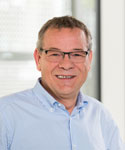 Stefano Passerini received his PhD in Electrochemistry from Sapienza University of Rome, Italy, in 1992. He then worked as a senior scientist at the University of Minnesota, US, and later at ENEA (Italian National Agency for New Technologies, Energy and Environment). He has also been a visiting scientist at Waseda University, Japan, and the University of Sao Paulo, Brazil. Appointed Professor at the Karlsruhe Institute of Technology, Germany, in 2014, he became Director of the Helmholtz Institute Ulm, Germany, in 2018. An internationally recognized pioneer in the field of ionic liquids and the development of sodium-ion batteries, Passerini’s research focuses on the basic understanding and development of materials for high-energy batteries and supercapacitors, with the goal to create sustainable energy storage systems from environmentally friendly and available materials and processes.
Stefano Passerini received his PhD in Electrochemistry from Sapienza University of Rome, Italy, in 1992. He then worked as a senior scientist at the University of Minnesota, US, and later at ENEA (Italian National Agency for New Technologies, Energy and Environment). He has also been a visiting scientist at Waseda University, Japan, and the University of Sao Paulo, Brazil. Appointed Professor at the Karlsruhe Institute of Technology, Germany, in 2014, he became Director of the Helmholtz Institute Ulm, Germany, in 2018. An internationally recognized pioneer in the field of ionic liquids and the development of sodium-ion batteries, Passerini’s research focuses on the basic understanding and development of materials for high-energy batteries and supercapacitors, with the goal to create sustainable energy storage systems from environmentally friendly and available materials and processes.
Passerini is co-author of more than 500 scientific papers with an H-index of 86, several book chapters, and international patents. In 2012, he was awarded the ECS Battery Division Research Award. In 2016, he was nominated as a Fellow of the International Society of Electrochemistry and, in 2019, as member of the Leopoldina Academy of Science.
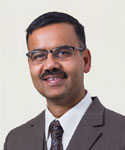 Venkataraman Thangadurai is a Professor of Chemistry at the University of Calgary, Canada. He received his PhD from the Indian Institute of Science in Bangalore in 1999 and completed postdoctoral research at the University of Kiel, Germany, with a prestigious fellowship from the Alexander von Humboldt Foundation. He completed the Habilitation Degree at the University of Kiel in 2004. Thangadurai’s research focuses on the development of novel solid-state electrolytes and electrodes for advanced all-solid-state batteries, solid oxide fuel cells, electrolyzers and electrochemical gas sensors. Thangadurai pioneered the development of fast Li-ion conducting garnet-type structure oxides, which form a singular class in all-solid-state lithium batteries because of their unique functional properties such as high ionic conductivity, excellent electrochemical stability window, and chemical stability with high voltage Li cathodes and elemental Li anode.
Venkataraman Thangadurai is a Professor of Chemistry at the University of Calgary, Canada. He received his PhD from the Indian Institute of Science in Bangalore in 1999 and completed postdoctoral research at the University of Kiel, Germany, with a prestigious fellowship from the Alexander von Humboldt Foundation. He completed the Habilitation Degree at the University of Kiel in 2004. Thangadurai’s research focuses on the development of novel solid-state electrolytes and electrodes for advanced all-solid-state batteries, solid oxide fuel cells, electrolyzers and electrochemical gas sensors. Thangadurai pioneered the development of fast Li-ion conducting garnet-type structure oxides, which form a singular class in all-solid-state lithium batteries because of their unique functional properties such as high ionic conductivity, excellent electrochemical stability window, and chemical stability with high voltage Li cathodes and elemental Li anode.
Thangadurai’s work generated over 200 peer-reviewed international journal articles, four book chapters, and five patent applications. Thangadurai received many awards including the Keith Laidler Award from the Canadian Society of Chemistry in 2016, University of Calgary Peak Scholar Award in 2019, and Outstanding Invention of 2013 Award (co-recipient) from the University of Maryland, USA. He is a Fellow of the Royal Society of Chemistry, UK; Co-founder and Associate Director of the Calgary Advanced Energy Storage & Conversion Research Technologies (CAESR-Tech.); and Co-founder and Scientific Advisor of Ion Storage Systems, Maryland, US.
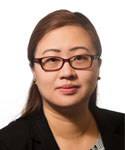 Jie Xiao is a Laboratory Fellow and Group Leader of Battery Materials & Systems at Pacific Northwest National Laboratory (PNNL). She is an affiliated Professor at University of Washington (UW), US, and UW-PNNL Distinguished Faculty Fellow in the Materials Sciences & Engineering Department. Dr. Xiao obtained her PhD in Materials Chemistry from the State University of New York Binghamton. She has been leading research thrusts on the fundamental study of energy storage materials and systems, and their practical applications from microbatteries for acoustic sensors to advanced battery technologies for vehicle electrification and grid energy storage.
Jie Xiao is a Laboratory Fellow and Group Leader of Battery Materials & Systems at Pacific Northwest National Laboratory (PNNL). She is an affiliated Professor at University of Washington (UW), US, and UW-PNNL Distinguished Faculty Fellow in the Materials Sciences & Engineering Department. Dr. Xiao obtained her PhD in Materials Chemistry from the State University of New York Binghamton. She has been leading research thrusts on the fundamental study of energy storage materials and systems, and their practical applications from microbatteries for acoustic sensors to advanced battery technologies for vehicle electrification and grid energy storage.
Xiao has published more than 100 peer-reviewed journal papers and two book chapters. Since 2017, she has been named top 1% Clarivate Analytics Highly Cited Researcher. Xiao holds 17 US patents in the area of energy storage research area, with three patents licensed to industry companies. A Battelle Distinguished Inventor, Xiao received the Federal Laboratory Consortium (FLC) Award, Young Researcher Award from the International Automotive Lithium Battery Association, Exceptional Contribution Award from the DOE Innovation Center for Battery500 Consortium, Ronald L. Brodzinski Early Career Exceptional Achievement Award, R&D 100 Award, and ACS Zappert Award.
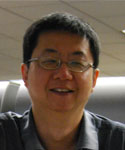 Kang Xu received his BA from the Southwest China Normal University (1985), his MS in Polymer Chemistry from the Institute of Chemical Physics (Academy of Science) in 1988, and PhD in Chemistry from Arizona State University in 1996. He is an ARL Fellow, Senior Chemist, and Team Leader at the U.S. Army Research Lab (ARL). Globally recognized as an authority in electrolyte materials and interphasial chemistry, his contributions to the field include developing new electrolyte materials such as solvents, salts, and additives of novel structures, and establishing foundational knowledge about ion solvation and transport, and interphasial chemistries and processes in batteries.
Kang Xu received his BA from the Southwest China Normal University (1985), his MS in Polymer Chemistry from the Institute of Chemical Physics (Academy of Science) in 1988, and PhD in Chemistry from Arizona State University in 1996. He is an ARL Fellow, Senior Chemist, and Team Leader at the U.S. Army Research Lab (ARL). Globally recognized as an authority in electrolyte materials and interphasial chemistry, his contributions to the field include developing new electrolyte materials such as solvents, salts, and additives of novel structures, and establishing foundational knowledge about ion solvation and transport, and interphasial chemistries and processes in batteries.
Dr. Xu’s academic record includes 250 peer-reviewed articles, 25 US Patents and five book chapters. His new book, Electrolytes, provides an authoritative, comprehensive, and yet colloquial textbook for students and professionals entering the energy storage field. He is co-founder of the Center of Research on Extreme Batteries (CREB) and Adjunct Professor at University of Maryland (UMD) College Park, US. He serves as Associate Editor for Energy & Environmental Materials and Journal of Electrochemistry, Advisory Board Member for ACS Applied Materials and Interfaces, and member of the ECS Publications Subcommittee. He received multiple awards, including the 2018 ECS Battery Division Research Award, 2017 IBA Technology Award, 2017 DoD Scientist of the Quarter Award, and 2015 UMD Invention of the Year Award.

Gleb Yushin is a Professor of Materials Science and Engineering at the Georgia Institute of Technology and an Editor-in-Chief of Materials Today, the flagship journal of the Materials Today family dedicated to covering the most innovative, cutting edge and influential work of broad interest to the materials science community. Yushin is also a co-Founder and a Chief Technology Officer of a Georgia Tech startup, Sila Nanotechnologies, Inc., an advanced battery materials company currently employing nearly 200 people and valued at over $1 billion.
Yushin pioneered transformative developments of advanced materials for next generation rechargeable batteries for clean energy and transportation. His major research and technological impacts have been recognized by his election as a Fellow of the Materials Research Society, Fellow of the EU Academy of Sciences, and Fellow of the National Academy of Inventors. He was recognized among “Leading and Most Cited Researchers in Sciences Around the World” by Clarivate Analytics.
Yushin’s international recognition and leadership is supported by his giving over 120 invited and keynote presentations and seminars, and serving as an invited reviewer to multiple funding agencies across the globe. His innovative synthesis approaches are supported by over 110 US and international patents and applications leading to drastic improvements in the stability and rate performance of high energy density energy storage devices for consumer electronics, electric vehicles, and grid storage applications.




